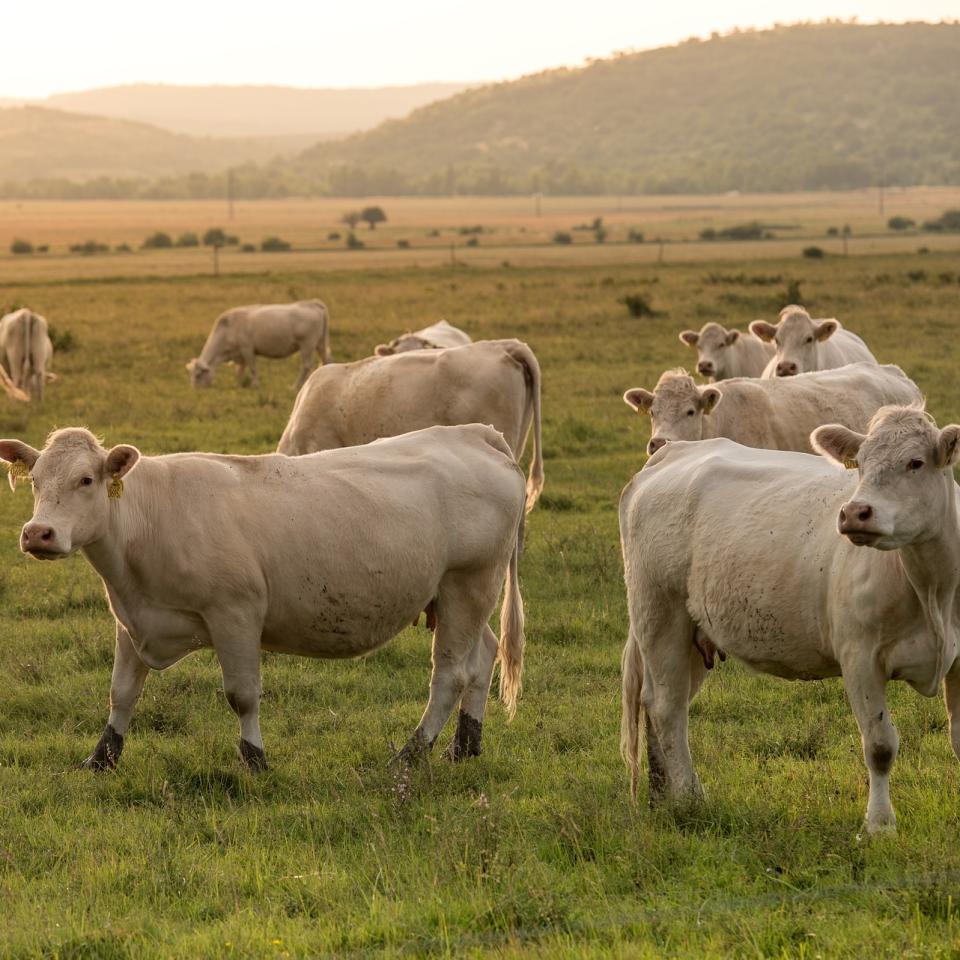
Making livestock farming more sustainable
Two new clover varieties developed by researchers at Aberystwyth University reduce the environmental impact of livestock farming, while delivering economic benefits to farmers.
Farmers are under pressure to reduce their environmental impact and, at the same time, produce enough food to feed the world’s growing population.
Livestock farming can put particular pressure on land. Many fields used for grazing or growing winter feed need frequent reseeding and fertilising to maintain their productivity. This is expensive for farmers (and consumers when the cost is passed on to them) and harmful to the environment.
Clover is a protein-rich feed crop that fixes nitrogen (extracts nitrogen from the air and converts it into a form that promotes plant growth) and improves the structure and fertility of soil. It can be a valuable companion crop to grass and can make farmland more sustainable. However, its use in the UK is limited as it tends not to last long.
The team at Aberystwyth University’s Institute of Biological, Environmental and Rural Sciences (IBERS) wanted to develop more persistent varieties of clover that would benefit farmers and the environment.
Developing new clover crops
The IBERS research team set out to develop clover crops that produce a high yield and withstand grazing, drought, frost, pests and diseases, and competition from the companion grass.
By introducing beneficial traits from one strain into another, and breeding in beneficial traits through recurrent selection, they developed two new varieties of clover.
AberLasting combines the nutritional qualities of white clover with the strong underground root system of Caucasian clover. Compared to white clover, it’s more resistant to grazing, drought and frost and has a high nutritional value and yield.
AberClaret is the result of a red clover breeding programme which prioritised selection high yield and longevity. Compared to 11 other red clover varieties, it lasts longer and gives a higher yield.
Reducing emissions and improving soil quality
Seed for AberLasting and AberClaret is now sold commercially in the UK, EU, New Zealand, Australia and Canada.
Where the new varieties of clover are grown:
- farmers need to reseed their fields less often
- more nitrogen is fixed in the soil, so farmers use less nitrogen fertilizer and N2O and CO2 emissions are reduced
- soil structure and fertility are improved
- the nutritional quality of grazing and silage is improved
- meat and milk outputs can increase
- farmers save money on seed, fertilizer and additional fodder.
When it’s used as a break crop to feed and rest land between sowings, AberClaret can improve the quality and structure of the soil and reduce weeds in subsequent cereal crops.
Finally, clover provides a habitat and food for insect pollinators, so its increased use is helping to protect grassland biodiversity.
Research team
Professor Leif Skøt, Dr David Lloyd, Professor Michael Abberton, Professor Athole Marshall and Dr Rosemary Collins from Aberystwyth University’s Institute of Biological, Environmental and Rural Sciences (IBERS)
